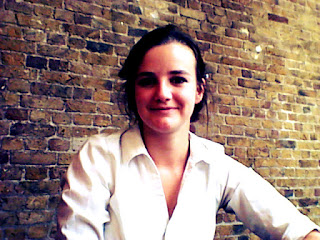Ever wonder what it's like working for Things We Don't Know? Our physics intern Johanna had this to say about her first week with us over the summer...
This week has been a bit mind boggling, but very fascinating too.
Having met with Nick Evans - Professor of theoretical high energy physics at Southampton - I began looking at the equations and laws that govern particle Physics and the open questions that occur from them, and then gravity which in itself is one big question! This led to many complex ideas. These include the idea that as observers we are forcing the world around us to change. This work also led me to appreciate how often in Physics answering a question creates further questions. For example, proof of the existence of the Higgs boson has led to the question "how do particles actually get their mass"?
Having been confused by the quantum world and gravity, I then entered the world of black holes starting with a meeting with Rob Fender - a Professor who studies the relativistic jets of black holes. It turns out last year's intern Jon had already done a good job at submitting black hole related questions, but luckily for me these mysterious objects have plenty of unknowns, so I could contribute a few more. For instance I had never realised that there is a lack of observed medium-sized black holes. These intermediate black holes could be a key piece of evidence when building a picture of how black holes form.
Both Nick and Rob were very helpful and it was nice to have things explained to me by people who really knew what they were talking about. So "thank you" to both of them for giving up their time to speak to me. It also made a nice change from using the internet, which although an amazing tool, can sometimes be very biased which makes it difficult to separate out fact from theory.
Before these meetings I had largely been working from home. I enjoyed looking into some slightly more abstract questions but ones of direct relevance to us. I was very intrigued by the question "is there a limit to how long we can live?". It was also very interesting looking into how nanotechnologies could help the water crisis and ways in which clean water may be economically and practically provided to those without it.
This week has been a bit mind boggling, but very fascinating too.
 |
| Physicist Johanna Blee worked for us for two months over the summer, on an internship we offered through our partnership with SEPnet. Photo ©TWDK. |
Having been confused by the quantum world and gravity, I then entered the world of black holes starting with a meeting with Rob Fender - a Professor who studies the relativistic jets of black holes. It turns out last year's intern Jon had already done a good job at submitting black hole related questions, but luckily for me these mysterious objects have plenty of unknowns, so I could contribute a few more. For instance I had never realised that there is a lack of observed medium-sized black holes. These intermediate black holes could be a key piece of evidence when building a picture of how black holes form.
Both Nick and Rob were very helpful and it was nice to have things explained to me by people who really knew what they were talking about. So "thank you" to both of them for giving up their time to speak to me. It also made a nice change from using the internet, which although an amazing tool, can sometimes be very biased which makes it difficult to separate out fact from theory.
Before these meetings I had largely been working from home. I enjoyed looking into some slightly more abstract questions but ones of direct relevance to us. I was very intrigued by the question "is there a limit to how long we can live?". It was also very interesting looking into how nanotechnologies could help the water crisis and ways in which clean water may be economically and practically provided to those without it.

No comments:
Post a Comment